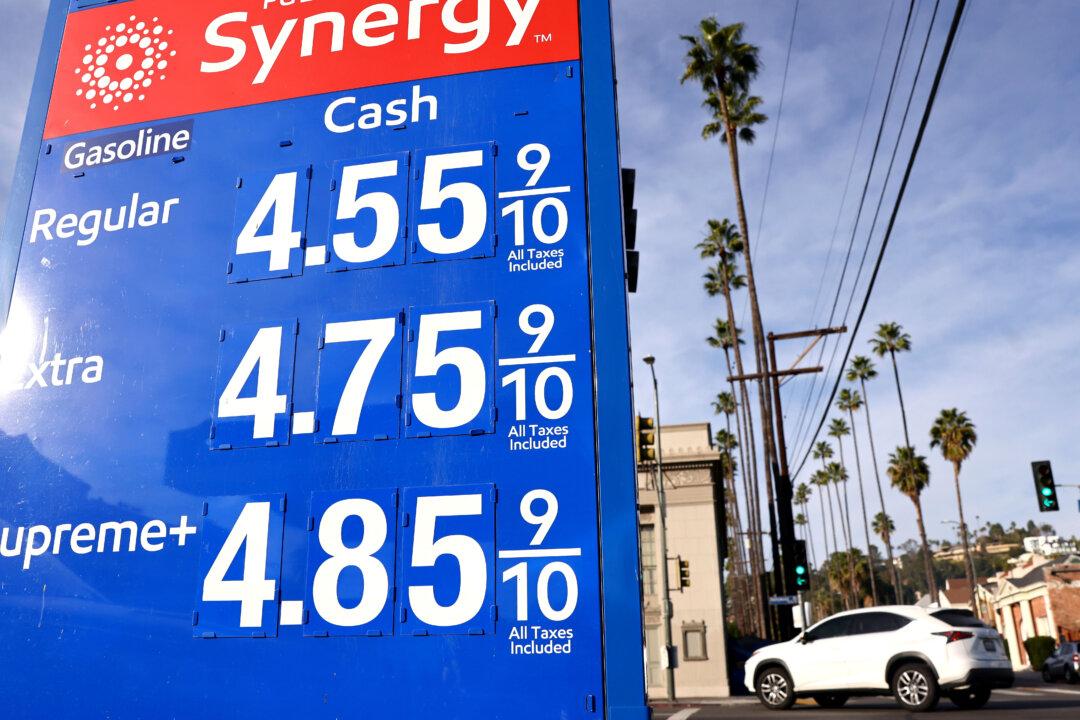A fuel forecast from GasBuddy predicts gasoline prices will reverse their downward drift and rise next year, potentially jumping as high as $4.13 per gallon in June, although a likely bump in crude supply is expected to push prices lower by the end of 2022.
GasBuddy’s 2022 Gasoline Forecast (pdf), released Dec. 29, predicts that the national retail gasoline price will average $3.41 per gallon for all of 2022—assuming no significant interruptions to the ongoing economic recovery.





